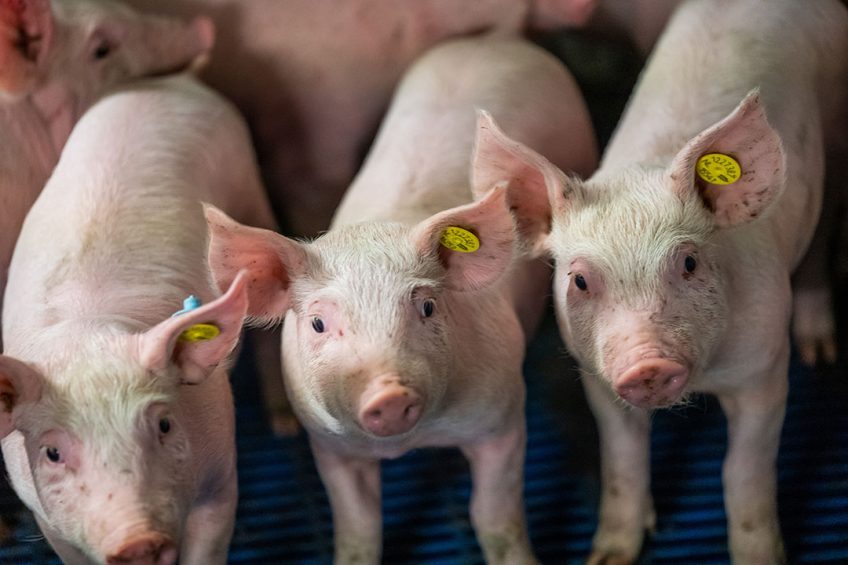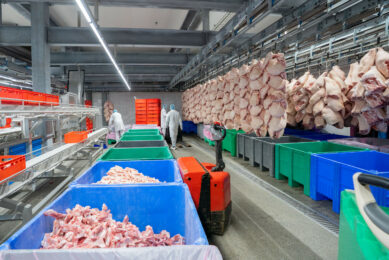Weaner pigs can benefit from dietary folic acid

A recent Chinese study determined that dietary folic acid supplementation can improve the growth performance and intestinal morphology of weaned piglets by maintaining the balance of epithelial cell renewal.
The study was published in the peer-reviewed journal Animal Nutrition in December 2020, and conducted by researchers from Hunan Normal University and the Chinese Academy of Sciences, both located in Changsha, China.
Their aim was to evaluate the effect of dietary folic acid levels on the growth performance, intestinal morphology and functions, and intestinal epithelial cell renewal in post-weaning piglets fed an antibiotic-free and zinc oxide-free diet.
Deficiency of folic acid: anaemia and diarrhoea
After all, the scientists explained, several studies in the past demonstrated that a deficiency of folic acid can lead to anaemia and diarrhoea and can reduce weight gain and litter size of piglets. Rapidly growing tissues or cells with a high turnover rate are sensitive to folic acid levels and so supplemental folic acid can promote the growth of young animals.
The study is relevant as post-weaning diets increasingly will have to rely on nutritional solutions without antibiotics or zinc oxide.
Trial set-up with 28 weaned piglets
Based on body weight, the research team selected 28 weaned piglets (on average 6.73 kg, 21 days of age). They randomly assigned them to 4 treatments. For 14 days, they fed the piglets the same antibiotic-free and zinc oxide-free basal diets supplemented with folic acid at:
- 0 mg/kg;
- 3 mg/kg;
- 9 mg/kg; and
- 18 mg/kg.
The folic acid used was a spray-dried micro-granular commercial product containing 80% folic acid using dextrin as the carrier.

Read also: The value of feed additives
Increasing the nutrient digestibility and deposition
The authors wrote that dietary supplementation with folic acid increased villus height, villus height-to-crypt depth ratio and villus surface area, and significantly increased the lactase and sucrase activities in the jejunal mucosa of weaned piglets.
In line with the intestinal morphology and functions improvement, dietary supplementation with folic acid 9 and 18 mg/kg groups significantly increased the average daily gain in weaned piglets. The researchers wrote: “Results indicated that dietary supplementation with high-dose folic acid (3, 9 and 18 mg/kg) can increase the utilisation of proteins, by promoting body protein synthesis and deposition”.

Read also: Canola meal in pig diets
Decrease of essential amino acids
Meanwhile, the team added, dietary supplementation with 9 and 18 mg/kg folic acid can significantly decrease some essential amino acid content in the blood, such as lysine, methionine and branched-chain amino acids, which further supported the above conclusion.
Therefore, they wrote, “Dietary supplementation with folic acid appears to improve the growth performance of weaned piglets by both increasing the nutrient digestibility and deposition.”
The article in Animal Nutrition was authored by Lei Wang, Xian Tan, Huiru Wang, Qiye Wang, Pengfei Huang, Yali Li, Jianzhong Li, Jing Huang, Huansheng Yang, attached to Hunan Normal University, China; and Yulong Yin, attached to the Chinese Academy of Sciences, Changsha, China. Lei Wang is also attached to the Chinese Academy of Sciences.











